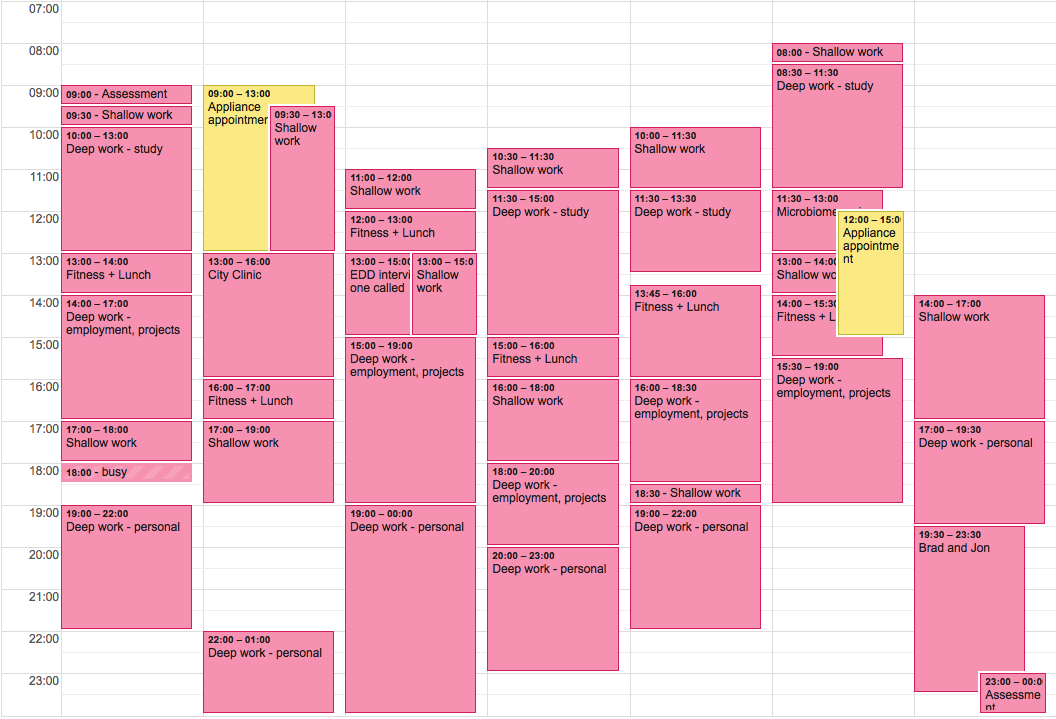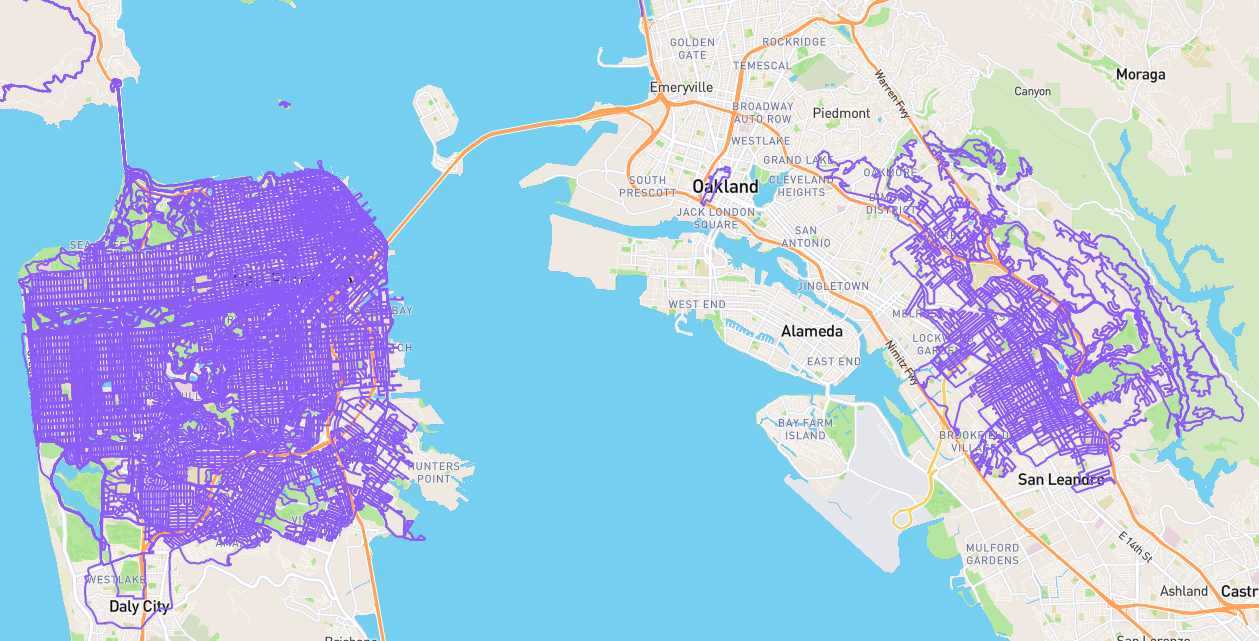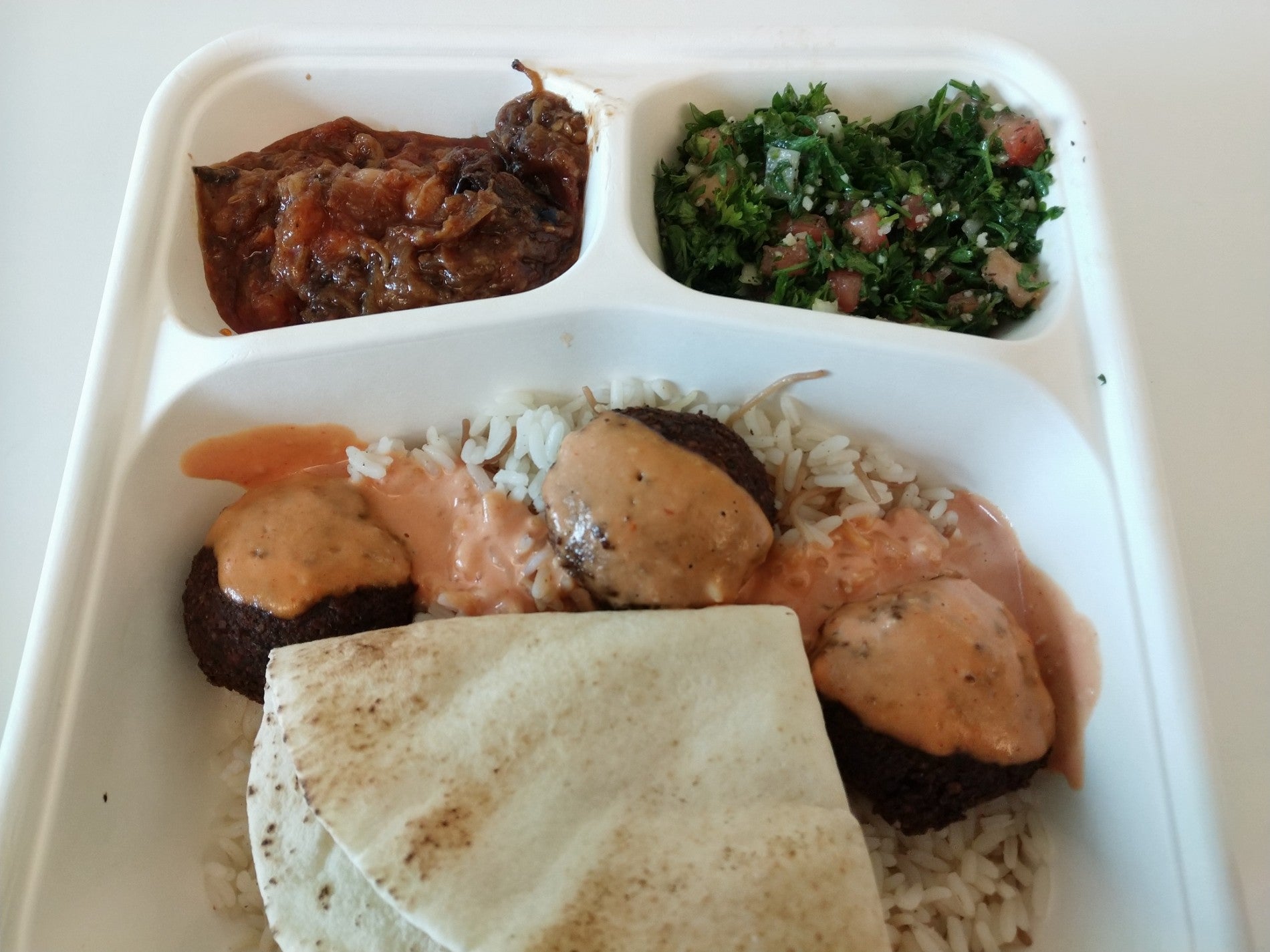Scorecard: year 1, week 1
The first week of my first 12 week year is over, and I scored 64.0%. More on that in a bit.
I initially scheduled consistent, solid blocks every day of the week, including the weekends, figuring my routines would get better established if I didn’t take days off. Since I spent much of this week engrossed in microbiome research, I really needed to stretch my biochemistry neurons for the first time in years. Even though that work only totaled about 20 hours, it was somewhat exhausting. I therefore didn’t stick to working all day Saturday and Sunday as planned, and the hours a bit lacking.
That wasn’t the only problem, though. I struggled to wake up on time, usually due to losing track of the number of times I hit snooze, or turning off the alarm clock. Typical stuff, but need to cut it out. I added oversleep hours into the scoring system to try to incentivize waking up on time.
Taking a suggestion from “Deep Work” by Cal Newport, I’ve been modifying the calendar as I went along. While this seems to defeat the purpose of establishing routines and committing, the actual objectives accomplished would still be captured in the scoring system at least. This also serves the practical purpose of helping me count hours. Newport argued for planning your day ahead of time in time blocks to train your brain to focus deeply on the tasks at hand and discourage it from thinking it can relieve boredom and seek stimulation on a whim. But, if “things come up” and you must break from the planned schedule, he said it was fine, so long as you take a moment to plan again the rest of the day. This way you would at least maintain some semblance of control over the schedule, even if it did need to change. He also suggested waiting an arbitrary five minutes before shifting to the new task, just so the brain gets the hint it can’t be immediately satisfied when it tries to distract you.
Partly because I use the Google calendar to plan the day, and make adjustments as necessary, I decided to cancel the planned assessments at the start of each day.
For the scoring system, I am opting to go by hours rather than coming up with specific objectives, especially since much of my goal right now is studying. I may reassess this after the first 12 weeks.
My basic strategy with the scoring is to come up with a percentage that represents hours fulfilled of the plan. To encourage spending hours on the planned tasks, I only count half of any hours that are above what I planned for a specific category. This maintains a positive effect for extra hours, but discourages extra hours on one task if another task is unfinished. I also subtract hours equal to hours I slept in, and subtract one hour for each soda, since I am trying to avoid soda. Also to encourage more “deep work”, I denote certain tasks as “deep” and separately total the number of hours fulfilled of the planned deep work hours. I just add both these totals together to come up with the percent. This way, spending an hour on a wrong task but still in deep work is better than spending an hour on a wrong task that is shallow.
So, for this week:
- 78.50 scheduled hours (46.00 deep)
- 63.75 completed hours (33.50 deep)
- 38.00 missed hours (planned tasks not completed)
- 23.25 overage hours (extra hours on planned task)
- 06.00 penalty hours for oversleeping
Before the deep work factor, this would be:
63.75 - (23.25 / 2) - 06.00 = 46.125 out of 78.50, which would be about 59%.
But I’m also counting the deep work hours as a separate factor:
78.50 + 46.00 = 124.50
46.125 + 33.50 = 79.625
79.625 / 124.50 = 64.0%























